Related Research Articles

The United Kingdom has had a significant film industry for over a century. While film production reached an all-time high in 1936, the "golden age" of British cinema is usually thought to have occurred in the 1940s, during which the directors David Lean, Michael Powell, and Carol Reed produced their most critically acclaimed works. Many British actors have accrued critical success and worldwide recognition, such as Audrey Hepburn, Olivia de Havilland, Vivien Leigh, Glynis Johns, Maggie Smith, Laurence Olivier, Michael Caine, Sean Connery, Joan Collins, Judi Dench, Julie Andrews, Daniel Day-Lewis, Gary Oldman, Emma Thompson, Anthony Hopkins and Kate Winslet. Some of the films with the largest ever box office returns have been made in the United Kingdom, including the third and sixth highest-grossing film franchises.

Alfred Hawthorne "Benny" Hill was an English comedian, actor, singer and writer. He is remembered for his television programme The Benny Hill Show, an amalgam of slapstick, burlesque and double entendre in a format that included live comedy and filmed segments, with Hill at the focus of almost every segment.
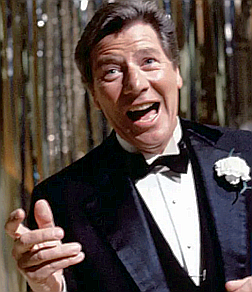
Walter William Bygraves, best known by the stage name Max Bygraves, was an English comedian, singer, actor and variety performer. He appeared on his own television shows, sometimes performing comedy sketches between songs. He made twenty Royal Variety Performance appearances and presented numerous programmes, including Family Fortunes between 1983 and 1985. His catchphrase "I wanna tell you a story" became an integral part of his act, although it had originated with comedian Mike Yarwood impersonating Bygraves.
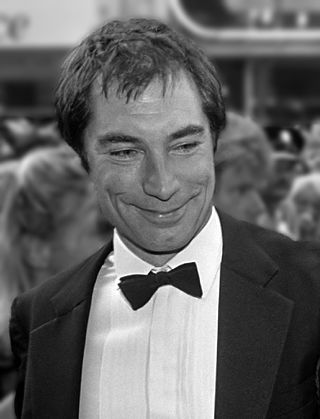
Timothy Leonard Dalton Leggett is a British actor. He gained international prominence as the fourth actor to portray fictional secret agent James Bond in the Eon Productions film series, starring in The Living Daylights (1987) and Licence to Kill (1989).
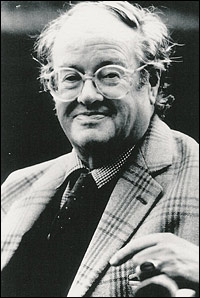
Sir John Clifford Mortimer was a British barrister, dramatist, screenwriter and author. He is best known for novels about a barrister named Horace Rumpole.
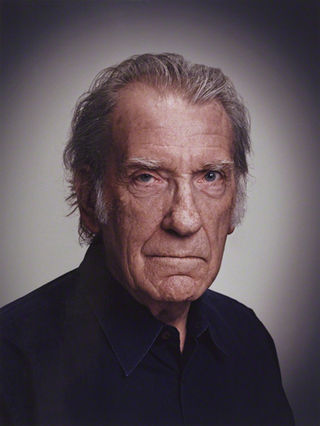
David Hattersley Warner was an English actor who worked in film, television and theatre. Warner's lanky, often haggard appearance lent itself to a variety of villainous characters as well as more sympathetic roles across stage and screen. He received accolades such as a Primetime Emmy Award and nominations for a BAFTA Award and Screen Actors Guild Award.

Richard Lester Liebman is an American retired film director based in the United Kingdom, famous for his comedic and campy tone style of shooting movies and for his work in both USA and UK cinema.

World in Action is a British investigative current affairs programme made by Granada Television for ITV from 7 January 1963 until 7 December 1998. Its campaigning journalism frequently had a major impact on events of the day. Its production teams often took audacious risks, and the programme gained a solid reputation for its often-unorthodox approach. The series was sold around the world and won numerous awards. In its heyday, World in Action drew audiences of up to 23 million in Britain alone, equivalent to almost half the population.

The British Film Institute (BFI) is a film and television charitable organisation which promotes and preserves film-making and television in the United Kingdom. The BFI uses funds provided by the National Lottery to encourage film production, distribution, and education. It is sponsored by the Department for Culture, Media and Sport, and partially funded under the British Film Institute Act 1949.

Jill Angela Henriette Balcon was a British actress. She was known for her work in film, television, radio and on stage. She made her film debut in Nicholas Nickleby (1947). She was the second wife of poet Cecil Day-Lewis; the couple had two children: Tamasin Day-Lewis became a food critic and TV chef and Daniel Day-Lewis is an actor.

The Wednesday Play is an anthology series of British television plays which ran on BBC1 for six seasons from October 1964 to May 1970. The plays were usually original works written for television, although dramatic adaptations of fiction also featured. The series gained a reputation for presenting contemporary social dramas, and for bringing issues to the attention of a mass audience that would not otherwise have been discussed on screen.
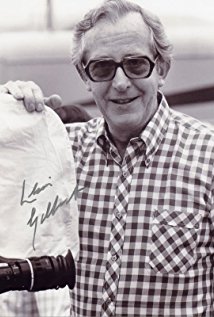
Lewis Gilbert was an English film director, producer and screenwriter who directed more than 40 films during six decades; among them such varied titles as Reach for the Sky (1956), Sink the Bismarck! (1960), Alfie (1966), Educating Rita (1983) and Shirley Valentine (1989), as well as three James Bond films: You Only Live Twice (1967), The Spy Who Loved Me (1977) and Moonraker (1979).
Robert James Leslie Halliwell was a British film critic, encyclopaedist and television rights buyer for ITV, the British commercial network, and Channel 4. He is best known for his reference guides, Filmgoer's Companion (1965), a single volume film-related encyclopaedia featuring biographies and technical terms, and the eponymous Halliwell's Film Guide (1977), which is dedicated to individual films. For some years, his books were the most accessible source for movie information, and his name became synonymous with film knowledge and research. Anthony Quinton wrote in the Times Literary Supplement in 1977:
Immersed in the enjoyment of these fine books, one should look up for a moment to admire the quite astonishing combination of industry and authority in one man which has brought them into existence.
Douglas Scott Botting was an English explorer, author, biographer and TV presenter and producer. He wrote biographies of naturalists Gavin Maxwell and Gerald Durrell. Botting was the inspiration behind and writer of the 1972 film The Black Safari, a role-reversal parody of English explorers, with Africans touring England, shown in the BBC 2 documentary series The World About Us. He also featured in much other BBC programming, including Under London Expedition exploring the London sewerage system, as part of the BBC2 nature series The World About Us. He wrote numerous Second World War and early aviation books for Time Life Books. Botting took part, with Anthony Smith, in the first balloon flight over Africa.

Peter Kosminsky is a British writer, director and producer. He has directed Hollywood movies such as White Oleander and television films like Warriors, The Government Inspector, The Promise, Wolf Hall and The State.
David Green is a British film director, television producer and media executive.
Gary Watson is a British retired actor. Early in his career he appeared in Friedrich Hebbel's 1962 play Judith at Her Majesty's Theatre in London, with Sean Connery. He made more than 40 appearances in television programmes between 1956 and 1988, and many more on radio and in commercials.

Royal Family is a British television documentary about the family of Queen Elizabeth II. It originally aired on BBC 1 and ITV in June 1969. The film attracted over 38 million viewers in the United Kingdom, and was sold around the world and seen by an estimated 350 million people. The Queen later had the documentary banned; it has not been shown on British TV since 1977, and access to view the film was heavily restricted. In early 2021 it was leaked and published on the internet. The film remains available to view on the video-sharing platform YouTube and the digital library website Internet Archive.

The British actor and comedian Peter Sellers (1925–1980) performed in many genres of light entertainment, including film, radio and theatre. He appeared in the BBC Radio comedy series The Goon Show, recorded a number of hit comic songs and became known internationally through his many film characterisations, among them Chief Inspector Clouseau in The Pink Panther film series. The filmmakers John and Roy Boulting described him as "the greatest comic genius [Britain] has produced since Charles Chaplin".
A Change of Sex is a multi-part television documentary about English trans woman Julia Grant. The first chapter, initially titled George, premiered on BBC2 in 1979. It is one of the first documentary films about transgender issues.
References
- ↑ "One Day in the Life of Television". BFI Film & TV Database. Archived from the original on 16 October 2012. Retrieved 14 July 2009.
- 1 2 Jane Harbor & Jeff Wright (1992). 40 Years of British Television. London: Boxtree. p. 111. ISBN 1-85283-409-9.
- ↑ Sean Day-Lewis (1989). One Day in the Life of Television. London: Grafton. ISBN 0-246-13497-6. (Paperback)
- ↑ Sean Day-Lewis (1989). One Day in the Life of Television. London: Grafton. ISBN 0-246-13424-0. (Hardcover)